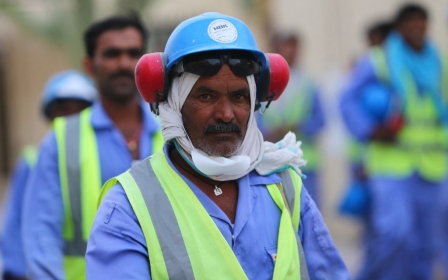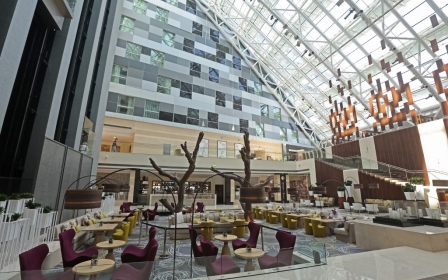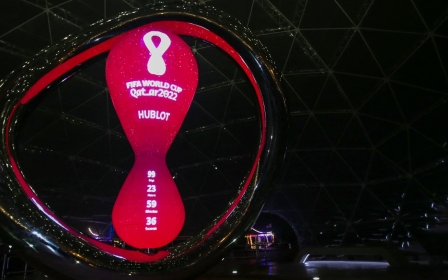World Cup 2022: Qatar population increased 13.2 percent in year leading up to tournament

Qatar's population increased by 13.2 percent in 2021, as the country recruited thousands of foreign workers ahead of the World Cup 2022, which Doha hosts in November.
According to data released by the Planning and Statistics Authority in September, Qatar's population reached 2.94 million after 370,000 people arrived in the country last year; the majority are migrant workers.
There are an estimated 380,000 Qatari citizens, while the rest of the population comprises low to medium-income migrant workers and some high earners who have residency and working visas in the country.
Qatar expects an influx of 1.2 million visitors for the world's biggest football event in November, which will pressure its infrastructure, hospitality and security sectors.
Migrant workers will be essential in keeping the country running during the two months of the World Cup. Qatari authorities had signed an agreement with Turkey to send 3,000 riot police officers to help maintain security.
New MEE newsletter: Jerusalem Dispatch
Sign up to get the latest insights and analysis on Israel-Palestine, alongside Turkey Unpacked and other MEE newsletters
In addition to Turkey, it was reported that Pakistan, the US, the UK, France, and Italy would provide military and police support for Qatar's Fifa World Cup 2022 tournament.
According to Reuters, Accor Group, a hospitality company in Qatar, had recruited 12,000 workers on temporary visas to handle the bookings of its 65,000 rooms and suites booked by fans in November and December.
Qatar has spent $229bn to build highways, seven football stadiums, hotels, skyscrapers, and infrastructure to host the World Cup in 2022.
It is estimated that nearly half of Qatar's population is employed in the construction sector related to the tournament.
The International Monetary Fund said that following the tournament, Qatar's population will drop by 1.2 percent annually, reaching 2.5 million by 2027.
Middle East Eye delivers independent and unrivalled coverage and analysis of the Middle East, North Africa and beyond. To learn more about republishing this content and the associated fees, please fill out this form. More about MEE can be found here.





